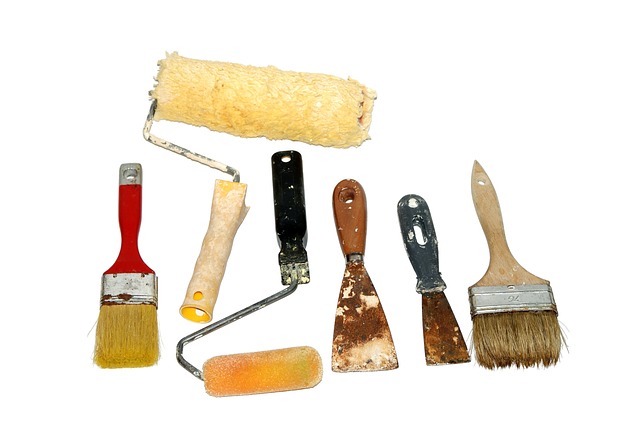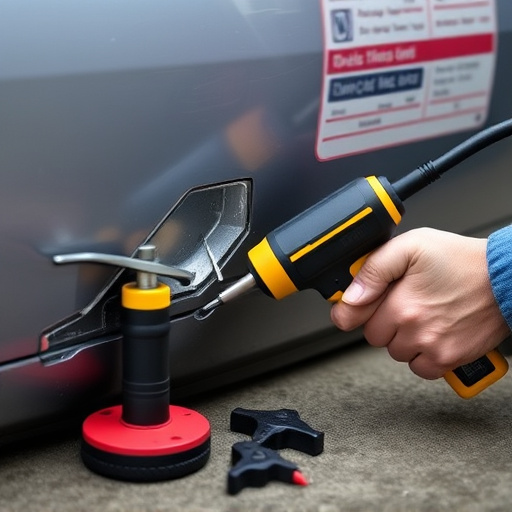In the dynamic automotive service industry, effective repair scheduling collision management is crucial for achieving warranty compliance and enhancing customer satisfaction. By seamlessly integrating body shops, insurance providers, and customers, robust systems streamline workflows, prevent errors, and ensure adherence to manufacturer guidelines. These solutions, which include digital scheduling platforms and standardized procedures, minimize disputes, improve transparency, and ultimately boost operational efficiency.
In today’s competitive automotive industry, efficient repair scheduling is crucial to maintaining customer satisfaction and ensuring warranty compliance. This article delves into the complex issue of repair scheduling collisions, exploring strategies to mitigate their impact. We’ll discuss the intricacies of understanding repair scheduling conflicts and pinpointing root causes. Furthermore, practical solutions will be presented to streamline processes, promote seamless warranty adherence, and ultimately enhance service center efficiency.
- Understanding Repair Scheduling Collision and Warranty Compliance
- Identifying the Root Causes of Repair Scheduling Issues
- Implementing Effective Solutions for Seamless Warranty Compliance
Understanding Repair Scheduling Collision and Warranty Compliance

In the complex landscape of automotive service management, understanding repair scheduling collision is paramount to maintaining warranty compliance. A repair scheduling collision refers to the coordination and optimization of repair appointments following an auto collision repair or vehicle accident. It involves seamless integration between car body shops, insurance providers, and customers to ensure that vehicles are repaired efficiently while adhering to manufacturer warranties.
Warranty compliance is a critical aspect of providing quality vehicle repair services. Every car body shop must navigate the intricacies of different warranty policies, understanding which repairs are covered and how to document them accurately. Efficient repair scheduling collision strategies streamline this process, minimizing delays and potential disputes with insurance companies. By implementing robust systems for collision repair scheduling, car body shops can enhance customer satisfaction, reduce operational costs, and foster stronger relationships with both clients and insurers.
Identifying the Root Causes of Repair Scheduling Issues

Identifying the root causes of repair scheduling issues is a critical step in minimizing collisions and ensuring warranty compliance. Many problems stem from inefficient workflows, whether it’s a lack of standardized procedures or manual data entry leading to errors. By analyzing past incidents, you can uncover recurring patterns – for instance, delayed parts delivery frequently causing backlogs and subsequent rescheduling.
Understanding these triggers enables you to implement targeted solutions. Streamlining communication between departments, adopting digital scheduling platforms, and establishing clear protocols for managing parts procurement can significantly reduce repair scheduling collisions. Moreover, integrating these improvements with your existing warranty management system ensures a seamless process that complies with manufacturer guidelines and protects both the dealership and the customer from costly disputes.
Implementing Effective Solutions for Seamless Warranty Compliance

Implementing effective solutions for seamless warranty compliance is a critical aspect of running an efficient auto body shop. By integrating robust repair scheduling collision systems, shops can streamline their processes and ensure every repair meets manufacturer standards. This involves meticulous planning and coordination to manage parts procurement, labor allocation, and quality control checks.
These systems enable real-time tracking of warranty claims, facilitating prompt identification and resolution of any issues. Moreover, they promote accurate record-keeping, which is essential for maintaining transparency with both customers and manufacturers. Ultimately, adopting these innovative solutions not only enhances operational efficiency but also strengthens the auto body shop’s reputation by demonstrating unwavering commitment to warranty compliance.
Repair scheduling collision, a common issue in the automotive industry, can significantly impact warranty compliance. By understanding the root causes of these collisions—such as inefficient processes, lack of communication, and limited visibility—and implementing effective solutions like streamlined scheduling software, enhanced data sharing, and comprehensive training programs, businesses can ensure seamless warranty compliance. These proactive measures not only mitigate risks but also foster better customer satisfaction and operational efficiency, ultimately positioning your business as a leader in the industry.













